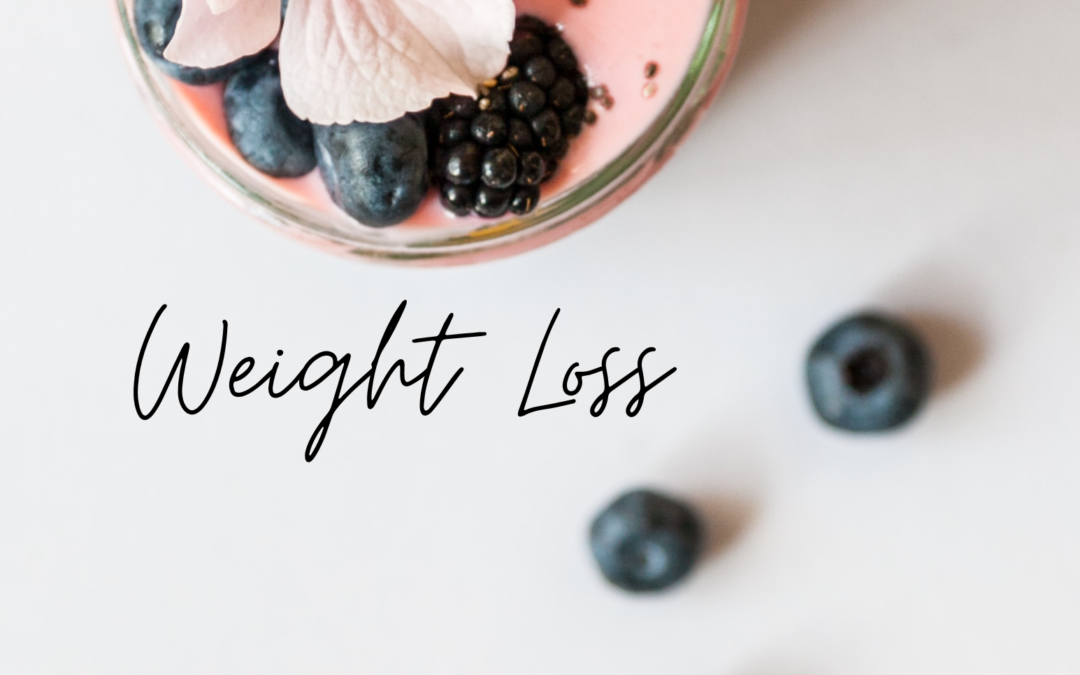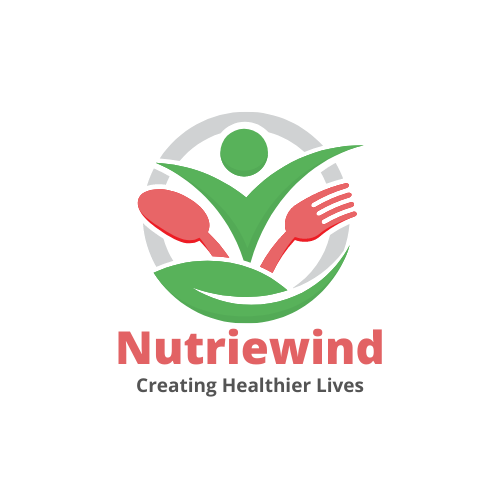COMPOSITION :
Based on composition proteins are classified into 3 types:
Simple proteins
THE BUILDING BLOCKS OF PROTEINS ARE AMINO ACIDS:
Function of proteins
Maintenance of tissues:
Regulatory functions:
Proteins as precursors of enzymes, hormones and antibodies:
Best food sources of protein | Best protein rich foods

WEIGHT LOSS
WEIGHT LOSS
Weight Loss means can improve cardiovascular health and reduce the risk of complications related to obesity. When your body doesn’t get the fuel, it needs to function normally, it goes into starvation mode and slows down to conserve energy. Essentially, your body begins to consume itself. If self-starvation continues and more body fat is lost, medical complications pile up and your body and mind pay the price. Most binge eaters eventually lose weight by choosing healthy foods and getting counseling. It’s a slow process, but you’ll be more apt to keep the weight off.
Total Calories in < Total Calories burned/out = Weight Loss.
Eating disorders are a group of conditions marked by an unhealthy relationship with food. There are two main types of eating disorders:
- Anorexia nervosa- This is characterized by weight loss often due to excessive dieting and exercise, sometimes to the point of starvation. People with anorexia feel they can never be thin enough and continue to see themselves as “fat” despite extreme weight loss.
- Avoidant/restrictive food intake disorder (ARFID)-This condition is characterized by eating very little and/or avoiding certain foods. It usually begins in childhood. People with ARFID may avoid certain foods because of their texture or odor.
CAUSES OF –
It can have causes that aren’t due to underlying disease. Examples include
- dieting,
- exercise,
- malnutrition or lack of access to food.
- Muscle loss
- Overactive thyroid.
- Rheumatoid arthritis.
- Inflammatory bowel disease.
- Dramatic weight loss
- Preoccupation with food, dieting, counting calories, etc.
- Refusal to eat certain foods, such as carbs or fats
- Avoiding mealtimes or eating in front of others
- Making comments about being “fat”
- Stopping menstruating
- Complaining about constipation or stomach pain
- Denying that extreme thinness is a problem
- Loss of appetite
SYMPTOMS –
Rapid weight loss sometimes triggers hormonal changes that could lead to acne, mood swings, depression, sleep disturbances and other undesirable symptoms. For women, another potential side effect of accelerated weight loss is irregular or missed menstrual cycles, also known as amenorrhea.
The physical signs and symptoms of anorexia nervosa are related to starvation, it also includes emotional and behavioral issues involving an unrealistic perception of body weight and an extremely strong fear of gaining weight or becoming fat. It may be difficult to notice signs and symptoms because what is considered a low body weight is different for each person, and some individuals may not appear extremely thin. Also, people with anorexia often disguise their thinness, eating habits or physical problems.
Extreme weight loss or not making expected developmental weight gains results to
- Thin appearance
- Abnormal blood counts
- Fatigue
- Insomnia
- Dizziness or fainting
- Bluish discoloration of the fingers
- Hair that thins, breaks or falls out
- Soft, downy hair covering the body
- Absence of menstruation
- Constipation and abdominal pain
- Dry or yellowish skin
- Intolerance of cold
- Irregular heart rhythms
- Low blood pressure
- Dehydration
- Swelling of arms or legs
- Eroded teeth and calluses on the knuckles from induced vomiting
Some people who have anorexia binge and purge, similar to individuals who have bulimia. But people with anorexia generally struggle with an abnormally low body weight
Achieving healthy weight loss isn’t about a “diet” or “program” but a lifestyle with healthy eating patterns, regular physical activity, and stress management. Medications taken for other conditions may also make it harder to lose weight. If you are concerned about your weight or have questions about your medications, talk with our health care highly qualified NUTRIEWIND dieticians and nutritionist.
Even a modest weight loss of 5% to 10% of your total body weight is likely to produce health benefits, such as improvements in blood pressure, blood cholesterol, and blood sugars.
Strategies for weight loss-
1. Make sure you’re ready
Long-term weight loss takes time and effort — and a long-term commitment. While you don’t want to put off weight loss indefinitely, you should make sure you’re ready to make permanent changes to eating and activity habits.
2. Find your inner motivation
No one else can make you lose weight. You must undertake diet and exercise changes to please yourself. What’s going to give you the burning drive to stick to your weight-loss plan?
Make a list of what’s important to you to help you stay motivated and focused, whether it’s an upcoming vacation or better overall health. Then find a way to make sure that you can call on your motivational factors during moments of temptation. You might want to post an encouraging note to yourself on the pantry door or refrigerator.
3. Set realistic goals
It may seem obvious to set realistic weight-loss goals, but do you really know what’s realistic? Over the long term, it’s smart to aim for losing 1 to 2 pounds (0.5 to 1 kilogram) a week. Generally, to lose 1 to 2 pounds a week, you need to burn 500 to 1,000 calories more than you consume each day, through a lower calorie diet and regular physical activity.
4. Enjoy healthier foods
Adopting a new eating style that promotes weight loss must include lowering your total calorie intake. But decreasing calories need not mean giving up taste, satisfaction or even ease of meal preparation. One way you can lower your calorie intake is by eating more plant-based foods — fruits, vegetables and whole grains. Strive for variety to help you achieve your goals without giving up taste or nutrition.
Get your weight loss started with these tips:
- Eat at least four servings of vegetables and three servings of fruits daily.
- Replace refined grains with whole grains.
- Use modest amounts of healthy fats, such as olive oil, vegetable oils, avocados, nuts, nut butters and nut oils.
- Cut back on sugar as much as possible, except the natural sugar in fruit.
- Choose low-fat dairy products and lean meat and poultry in limited amounts.
5. Get active, stay active
While you can lose weight without exercise, regular physical activity plus calorie restriction can help give you the weight-loss edge. Exercise can help burn off the excess calories you can’t cut through diet alone. It also offers numerous health benefits, including boosting you good strengthening your cardiovascular system and reducing your blood pressure, also help in maintaining weight loss.
6. Change your perspective
It’s not enough to eat healthy foods and exercise for only a few weeks or even months , if you want long-term, successful weight management. These habits must become a way of life. Lifestyle changes start with taking an honest look at your eating patterns and daily routine.

Secrets to why ZUMBA is importance
WHAT ACTUALLY ZUMBA IS:
Zumba is an interval workout. The classes move between high- and low-intensity dance moves designed to get your heart rate up and boost your cardio endurance.
IMPORTANCE OF ZUMBA:
It is a dance fitness program that helps you lose weight, get back in shape, and stay fit, all this while having loads of fun. Dance and music can uplift our moods and have proven to be great stress-busters, sometimes therapeutic, even. It is a great form of fitness program that blends them both with physical activity.
1. Complete a Full-Body Workout:
During a Zumba class, you’ll follow choreography with footwork that works your leg muscles, arm movements that tone your arm muscles, and squats that can tighten your glute and core muscles. Whether you’re new to the dance fitness world or have been taking different types of dance exercise classes for a while, you’ll experience the post-workout feel from a Zumba class the next day, throughout your entire body
2.Boost Your Mood:
Whether it’s been a rough day, you’re stressed or you just need a morning pick-me-up, Zumba is the perfect mood booster. Zumba can benefit many aspects of mental health. The combination of exercise and dance causes your brain to release endorphins like serotonin, making you happier. In general, exercise can also help alleviate any built-up stress, anger, or anxiety that needs an outlet to escape.
3 . Assist Your Metabolism:
Zumba classes, and any other type of cardio workout, may help give your metabolism a boost.
Keep in mind that you can’t really “increase” your metabolism — and trying to do so won’t help you lose weight. However, you can assist your metabolism by burning more calories than you take in, and Zumba is a wonderful way to do just that. All levels of Zumba can impact your metabolism. Whether you’re beginning your Zumba journey and taking traditional Zumba classes, or you’re participating in more intense Zumba classes that cause you to exert high amounts of energy, you’re still burning calories and activating your metabolism.
Health benefits of Zumba:
1) It’s fun:
The more you enjoy your exercise routine, the more likely you are to stick with it. Many people say they have so much fun dancing that they forget they are actually exercising.
2) Great for weight loss:
Zumba is a powerful exercise with a 600 to 1,000-calorie burn in just an hour.
3) Tones your entire body:
You may feel sore in places you never knew existed, but it gets results. Zumba targets lots of different muscle groups at once for total body toning.
4) Boosts your heart health:
You not only get aerobic benefits (it really gets your heart rate up), but you also get anaerobic benefits – the kind that helps you maintain a good cardiovascular respiratory system.
5) Helps you de-stress:
Turning your attention to dance, and away from the daily grind, is a great way to relieve stress. Studies show that exercise is very effective at reducing fatigue, improving alertness and concentration, and enhancing overall cognitive function.
6) Improves coordination:
In Zumba, your arms and legs are generally moving in different directions so it requires a good deal of coordination. Repeated practice improves coordination and helps you feel more comfortable moving your body.
7) Makes you happy:
Every time you exercise, you release endorphins, which trigger positive feelings throughout the body.
8) Great Heart Health:
Your cardiovascular health will be much improved with Zumba. As it is like a dance, you will not have to control the pace of your breathing. Rather, you will need to breathe more because it is a high-energy dance workout. It will increase the level of oxygen in your body which will help you to stay more energetic.
9) Improved Blood Pressure:
As the level of oxygen increases in the blood, the excess pressure is not created on the heart to pump the blood in other parts of the body. It is one of the greatest benefits of this activity. So, if you want to have steady blood pressure, Zumba is mandatory, and you will get the additional gift of losing your body fat.
10) Body Awareness:
Zumba teaches body awareness through functional movement, due to which you will be able to stay flexible all through. You are unable to move your hands or feet normally maybe it’s because of joint pains or because of muscle cramps.
11) Build Anaerobic Endurance :
It’s not just aerobics that Zumba helps you improve. Because most of the music used during the class relies on a slow buildup, it helps you improve your anaerobic endurance. Plus, the slow warmup helps you increase the amount of oxygen that your body can take in while performing high-intensity activities. It’s a great morning workout routine to participate in to get the blood flowing and oxygen pumping through your veins.
12) Boost Your Confidence :
There’s nothing like dancing to lowering your inhibitions and standing a little taller. When you participate regularly in Zumba, you’ll begin to feel better about yourself thanks to your improved coordination.
13) Improves Quality of Life :
Quality of life is a term that is used quite frivolously, but it can often be unclear as to what it actually means. We’d define it as the small things that make a big difference to your everyday life – whether it’s climbing the stairs to the office without getting out of breath, noticing you’re making unconscious healthier choices, or even having a better posture on the sofa at home, it’s all the changes that ultimately mount up to have a noticeable impact on your life.
14) Psychological Benefits :
Zumba is a workout with physical and mental health benefits because it is a great way to relieve stress as Zumba makes you forget all your tensions for that time span. This is a workout that you enjoy, and any workout is more effective when you enjoy it.
After Zumba, you will stay extremely energetic and positive so you will get a lot of fresh ideas. Also, you will find that you are more confident in your decisions which are also a result of your Zumba session. This is not the end of the benefits of Zumba! It can offer you a lot more…

Scope of Food Technology as a Career
Scope of Food Technology
Food technology is developed as a discipline to systematically organize and link the various kind of knowledge which are necessary to inform human activity in food handling, processing, distribution, and marketing.
Carrier opportunity in Food Technology:-
Food is the most important part of our life. Without it, no one can survive. Every day, we consume food differently. The experts are called food technologists who come up with new ideas and flavors for various food products that we consume in our daily lives. After revolutionary development in new technologies and the increasing demand for food technologists, it has become a rewarding career option.
Over the last decades, the world is witnessing great progress in the food sector; therefore, the demand for Food Science and Technology professionals has been increasing. With the growing new technologies, this sector is growing as a big market in countries like India. Using chemistry, microbiology, engineering, and other sciences, the food technician becomes a need for the food market. Below, we have mentioned the type of Food Science and Technology professionals:
1. Research Scientist in Food Technology:
A research scientist carries out various experiments using chemistry, microbiology, engineering, and other sciences that lead to improved yield, flavor, nutrition, and general acceptability of packaged food.
2. Food Inspector/ Quality Controller:
The main job of a food inspector/quality controller is to ensure the quality of food produced is maintained. A food inspector runs a variety of tests on both packaging and the food and ensures that the food that the people consume is safe.
3. Lab Technician:
The lab technician is mainly responsible for providing all technical support needed to enable the lab to function effectively. They are bound to perform tasks like sampling, testing, measuring, as well as analyzing results.
4. Organic Chemist:
Organic chemists recommend methods by which raw materials are converted into processed food.
5. Biochemist:
The role of a biochemist is similar to the role of an organic chemist. They suggest improvements in food quality, texture, flavor, storage, etc.
6. Food Engineer:
Those who have completed B.Tech in Food Technology can opt to become a Food Engineer. An engineer in the food industry is required to plan, design, improve, and maintain the processing systems.
7. Food Product Development Director:
A food product development director helps in the preservation and packaging of food items.
Job Opportunities in Government Sector in India
1. The Food Corporation of India (FCI)
2. Food Safety and Standards Authority of India (FSSAI)
3. Bureau of Indian Standards (BIS)
4. Ministry of Agriculture, Ministry of Health & Family Welfare, Ministry of Food Processing Industries
5.APEDA, MPEDA, NABARD, NAFED, MAFED, BARC
6. State & Central Food Laboratories
7. State Govt: Food Safety Officer/Food Inspector
8. CFTRI, IICPT, DFRL, NIFTEM – Scientist/Asst. Professor
9. ICAR (ARS) Scientist

Weight Gain
WEIGHT GAIN
Pounds added to body mass, often resulting from overeating or lack of physical activity.
If you have a binge eating disorder, your eating habits could lead to serious problems that might last a lifetime.
These include:- Weight Gain and Obesity
Weight gain is common when you binge eat. Two-thirds of those with the disorder are overweight. You put on extra pounds by eating lots of food in a short period of time and not burning the calories off with exercise.
A lot of people who binge feel bad about their weight, too. This leads to low self-esteem, which can cause more overeating. Being overweight or obese can also raise your chances of getting long-term health problems.
Binge eating disorder is not the only eating disorder potentially experienced by people with higher weight. People with higher weight may experience a range of eating disorders including but not limited to other specified feeding or eating disorder (OSFED; which includes ‘atypical anorexia nervosa’), bulimia nervosa and binge eating disorder
Eating disorders are common and increasing in prevalence. This is particularly true for people with eating disorders who are of higher weight. This population comprises more than half of all people with an eating disorder in Australia with rates of eating disorders increasing most in people with higher weight.
CAUSE-
That’s not because you gained body fat, but because of water retention from extra salt that was in the food you ate.
Behavioral and emotional signs and symptoms of binge-eating disorder include–
- Eating unusually large amounts of food in a specific amount of time, such as over a two-hour period
- Feeling that your eating behavior is out of control
- Eating even when you’re full or not hungry
- Eating rapidly during binge episodes
- Eating until you’re uncomfortably full
- Frequently eating alone or in secret
- Feeling depressed, disgusted, ashamed, guilty or upset about your eating
- Frequently dieting, possibly without weight loss
DIETARY MANAGEMENT
Choose minimally processed, whole foods-whole grains, vegetables, fruits, nuts, healthful sources of protein (fish, poultry, beans), and plant oils. Limit sugared beverages, refined grains, potatoes, red and processed meats, and other highly processed foods, such as fast food.
12 Key Fundamentals of Losing Weight
- Calories Matter(. If you want to lose weight, you must create some sort of calorie deficit.)
- Focus on Eating Whole Foods and High-Fibre Foods.
- Portion Control.
- Be More Active.
- Eat More Fruit and Veg
- Drink More Water.
- Cut Down on Alcohol.
- Don’t Keep Junk Food in the House.
- Sleep
- Read food labels before having food
- Plan your meals
- Eat regularly meals and dont skip breakfast
Lifestyle and home remedies
Typically, treating binge-eating disorder on your own isn’t effective. But in addition to professional help, you can take these self-care steps to reinforce your treatment plan:
Stick to your treatment. Don’t skip therapy sessions. If you have a meal plan, do your best to stick to it and don’t let setbacks derail your overall efforts.
Avoid dieting, unless it’s supervised. Trying to diet can trigger more binge episodes, leading to a vicious cycle that’s hard to break. Talk with your medical care provider about appropriate weight management strategies for you — don’t diet unless it’s recommended for your eating disorder treatment and supervised by your medical care provider.
Eat breakfast. Many people with binge-eating disorder skip breakfast. But, if you eat breakfast, you may be less prone to eating higher calorie meals later in the day.
Arrange your environment. Availability of certain foods can trigger binges for some people. Keep tempting binge foods out of your home or limit your exposure to those foods as best you can.
Get the right nutrients. Just because you may be eating a lot during binges doesn’t mean you’re eating the kinds of food that supply all the essential nutrients. Ask your medical care provider if you need to adjust your diet to provide essential vitamins and minerals.
Stay connected. Don’t isolate yourself from caring family members and friends who want to see you get healthy. Understand that they have your best interests at heart.
Get active. Ask your medical care provider what kind of physical activity is appropriate for you, especially if you have health problems related to being overweight.
The treatment plan for BED depends on the causes and severity of the eating disorder, as well as individual goals.
- Treatment may target binge eating behaviors, excess weight, body image, mental health issues, or a combination of these.
- Therapy options include cognitive behavioral therapy, interpersonal psychotherapy, dialectical behavior therapy, weight loss therapy, and medication. These may be carried out on a one-to-one basis, in a group setting, or in a self-help format.
- In some people, just one type of therapy may be required, while others may need to try different combinations until they find the right fit.
- A medical or mental health professional can provide advice on selecting an individual treatment plan.
- It’s characterized by repeated, uncontrolled episodes of eating large amounts of food and often accompanied by feelings of shame and guilt.
- It can have negative effects on overall health, body weight, self-esteem, and mental health.
- Fortunately, very effective treatments are available for BED, including CBT and IPT. There are also many healthy lifestyle strategies that can be incorporated into everyday life.
- The first step in overcoming BED is to ask for help from a medical professional.

What is Skin Health?
What is Skin Health
Skin health is a key element to how we feel and how others look at us. There are many elements to glowing skin, but below, I will pinpoint 7 foods that are important for the health of your skin.
CAUSES
Asteatotis, xerosis, follicular hyperkeratosis, carotenoderma, hyperpigmentation, acne, pruritus,and facial dermatitis etc…
SYMPTOMS
Chapped lips, itchy skin, dried skin, puffy face, sores, acne, allergy etc.
Eating disorders can be a serious threat to your health. Becoming overly fixated on your appearance and/or having a negative body image can lead some people to severely restrict how much they eat or binge and then purge. Society might make you think that beauty is all-important, but the truth is that how you look on the outside is only one small part of what makes you beautiful.
Body Image
Body image is how you see yourself and how attractive you feel. Society places a lot of importance on how a person looks, from a person’s body shape to their facial features, hair, or skin tone. Striving to reach an unattainable standard of beauty and not conforming to societal norms can cause you to feel uncomfortable and embarrassed about your body, which can cause distress. If the distress is serious enough, it can even lead to emotional and physical health problems. Ideally, you should accept your body as it is, knowing that no one is perfect. If your body isn’t exactly the way you want, make efforts to start healthy habits. But never shame yourself or be overly harsh with yourself about your body and its appearance.
Many people with anorexia also deal with acne. Read about the relationship between anorexia and skin problems, like acne.
Anorexia nervosa is an eating disorder that can produce several health problems, including acne.
Acne is a skin condition that occurs when oily secretions in the skin plug the openings of hair follicles. It produces red, bumpy lesions on the skin. According to the U.S. National Library of Medicine, acne can occur in people of all ages but is most common among teenagers.
Many people who experience anorexia also develop acne. The website for Eating Disorder Hope includes a testimonial from a woman in recovery from anorexia who also dealt with acne problems at the height of her anorexia. Acne can exacerbate self-image problems in people with anorexia. In some cases, acne can worsen eating disorders and cause depressive symptoms
Acne During Anorexia Nervosa
The restrictive behaviors of anorexia nervosa lead to severe malnourishment, which impacts the functioning of all organ systems of the body. The body, stripped of appropriate vitamins and nutrients, often attempts to use its current stores to find these which can lead to alterations in how all systems function. For example, one study noted that “hepatic, renal and thyroid functioning problems related to anorexia can…bring about pruritus, which is severe itching of the skin ” This severe itching of the skin can lead to increased scratching and touching, resulting in oil deposits into pores.
The skin also dries due to anorexia nervosa behaviors. When this occurs, the body sends more oil deposits to lubricate the skin, which may lead to pore clogging.
DIETARY MANAGEMENT
Essential nutrients for healthy skin are vitamin-A, vitamin C, Vitamin-E, Omega-3 fatty acids, selenium, collagen, Zinc, and copper.
Lifestyle management tips for healthy skin include the following:-
- Hydration
- Consuming low glycemic index foods
- Avoiding inflammatory foods
- Managing gut health
- Exercise
- Good sleep
Nutrition is important for health. An unhealthy diet can damage your metabolism, cause weight gain, and even damage organs, such as your heart and liver.
But what you eat also affects another organ — your skin.
As scientists learn more about diet and the body, it’s increasingly clear that what you eat can significantly affect the health and aging of your skin.
FEW SOURCES OF GOOD SKIN HEALTH
Fatty fish, Avocados, Walnuts, Sunflower seeds
Sweet potatoes, Red or yellow bell pepper, Broccoli, Tomatoes…..etc
Healthy Food Healthy Skin
We are eating a healthy, well-balanced diet, and having healthy-looking skin goes hand in hand. While there is not a ton of proof that certain foods can be harmful to your skin, what we absolutely know is that a diet rich in antioxidants, vitamins, and healthy fats can have considerable benefits to young and aging skin.
There are different categories to break down your foods to make sure you are getting the proper nutrients daily and healthy glowing skin.
There are so many antioxidant-rich fruits and vegetables that can fall into this category. Think the darker and brighter the fruit or vegetable is, the richer in vitamins and antioxidants.
Vitamin C-rich foods are known to boost collagen levels in the skin: citrus fruits, kale broccoli, and bell peppers
Drink water! Staying hydrated is another big component of what we take in and how it affects our bodies. Staying hydrated is key to healthy skin and overall health.
There are also supplements and even spices to add to food if these foods are not in your daily diet.
Eating a well-balanced diet is only part of what needs to be done to obtain optimal health and great-looking skin, but it is an important piece!
TIPS FOR HEALTHY SKIN:-
Wash up. Bathe in warm—not hot—water; use mild cleansers that don’t irritate, and wash
gently—don’t scrub.
Block sun damage. Avoid intense sun exposure, use sunscreen, and wear protective clothing.
Don’t use tanning beds or sunlamps. They emit the same harmful UV radiation as the sun.
Avoid dry skin. Drink plenty of water, and use gentle moisturizers, lotions, or creams.
Reduce stress. Stress can harm your skin and other body systems.
Get enough sleep. Experts recommend about 9 hours a night for teens and 7-8 hours for adults.
Speak up. Talk to your doctor if you notice any odd changes to your skin, like a rash or mole that changes size or color.
Using sunscreen on a daily basis. Sun exposure causes the most damage to our skin. As well as successfully protect our skin from harsh UV rays, preventing blemishes and hyperpigmentation in the future, sunscreen is crucial in preventing skin cancers.
Maintain a skincare routine. Try to follow a simple skincare routine every day, both day and night, to clean the skin e.g. face wash, toner, and moisturizer. The steps will be the same for both day and night, except in the daytime it should include sunscreen. Avoid using harsh products.
Avoid smoking. Smoking can cause wrinkles and quicken the aging process.
Follow a healthy diet. No matter how much you take care of your skin from the outside, if the things you are consuming are not good, it will reflect through your skin. Drink a lot of water and eat lots of fruits and vegetables.
Stress management. Stress can trigger many skin problems, as it disturbs the hormones resulting in pimples.
Adequate sleep. Proper sleep is an essential part of skincare, although it is often neglected. Lack of sleep can lead to dull skin and dark circles.
See a dermatologist. If you want to take advanced care of your skin or you are suffering from skin problems, then you should seek help from a qualified professional such as a dermatologist.
